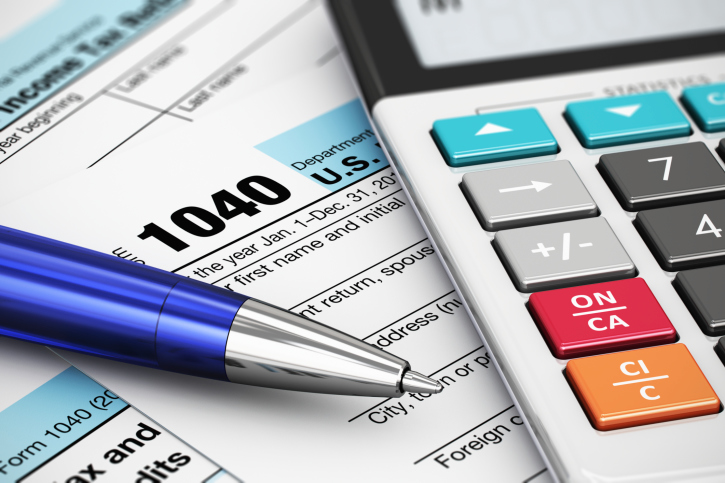 Many homeowners are surprised when they receive their annual property tax bill and notice an increase that feels higher than expected. The good news is that you have the right to appeal your property tax assessment if you believe it does not reflect the true value of your home. Understanding the process can help you protect your budget and ensure that you are being taxed fairly.
Many homeowners are surprised when they receive their annual property tax bill and notice an increase that feels higher than expected. The good news is that you have the right to appeal your property tax assessment if you believe it does not reflect the true value of your home. Understanding the process can help you protect your budget and ensure that you are being taxed fairly.
Know What Your Assessment Means
Your property tax bill is based on the value assigned to your home by your local tax authority. This value may not match the current market value. It is an estimate that is sometimes updated on a set schedule rather than in real time. Reviewing this number closely is the first step toward knowing if an appeal is worth pursuing.
Compare Your Home to Similar Properties
Before filing an appeal, compare your home to other similar homes that recently sold in your area. Look for homes with similar size, age, and features. If you notice that your assessed value is significantly higher than comparable properties, it may be a strong sign that your assessment is inaccurate. Real estate agents often provide market reports that can help with this step.
Look for Errors in Your Record
Tax authorities sometimes use outdated or incorrect information when assessing a property. Review the details used to calculate your value. Check the number of bedrooms, bathrooms, square footage, and improvements. If something is wrong, correcting the record can reduce your property tax bill without needing a full appeal.
Gather the Right Evidence
Successful appeals rely on strong documentation. This may include recent sales data, photos of your home, contractor estimates for needed repairs, or an independent appraisal. The clearer and complete your evidence is, the easier it becomes to prove that your assessment is too high.
File Your Appeal on Time
Each city and county has deadlines for submitting appeals. These dates are very important. Missing a deadline may require you to wait an entire year before trying again. Filing early helps you stay organized and gives you time to provide all required documents.
Prepare for the Review Process
Some appeals are resolved through written documentation, while others require a meeting with the review board. If a meeting is scheduled, stay calm and focused. Present your evidence clearly and explain why your assessment does not accurately reflect the value of your home. Real estate professionals can be helpful in guiding you through this step.
Fair Property Taxes Start with Accurate Information
Appealing your property taxes takes some effort, but it can lead to meaningful savings. By reviewing your assessment and gathering the right information, you can make sure you are paying a fair amount based on the true value of your home.
 Buying a home is one of life’s biggest milestones, but it also comes with ongoing responsibilities that many first-time buyers overlook. The purchase price and mortgage are only part of the picture. Once the excitement of closing day fades, new homeowners often discover a range of hidden costs that can affect their monthly budgets and long-term financial stability.
Buying a home is one of life’s biggest milestones, but it also comes with ongoing responsibilities that many first-time buyers overlook. The purchase price and mortgage are only part of the picture. Once the excitement of closing day fades, new homeowners often discover a range of hidden costs that can affect their monthly budgets and long-term financial stability. When you are planning to buy a home, there is one number that should never be overlooked: property taxes.
When you are planning to buy a home, there is one number that should never be overlooked: property taxes. A mortgage escrow account, also known simply as an escrow account, is a financial arrangement set up by a mortgage lender to manage and disburse certain payments related to the property on behalf of the homeowner. The purpose of an escrow account is to ensure that essential expenses, such as property taxes and homeowners’ insurance, are paid on time.
A mortgage escrow account, also known simply as an escrow account, is a financial arrangement set up by a mortgage lender to manage and disburse certain payments related to the property on behalf of the homeowner. The purpose of an escrow account is to ensure that essential expenses, such as property taxes and homeowners’ insurance, are paid on time. Purchasing a new home is an exciting milestone, but it also comes with various responsibilities, including understanding property taxes. Property taxes are a crucial aspect of homeownership, as they contribute to local government funding and services. In this guide, we’ll break down everything you need to know about property taxes as a new homebuyer.
Purchasing a new home is an exciting milestone, but it also comes with various responsibilities, including understanding property taxes. Property taxes are a crucial aspect of homeownership, as they contribute to local government funding and services. In this guide, we’ll break down everything you need to know about property taxes as a new homebuyer. Property taxes can be a substantial financial burden for homeowners and property owners. Each year, local governments assess the value of properties to determine the amount of property tax owed. However, these assessments are not always accurate and can result in higher tax bills than necessary. Disputing your property tax assessment is a proactive way to potentially save money and ensure you’re paying a fair and equitable amount.
Property taxes can be a substantial financial burden for homeowners and property owners. Each year, local governments assess the value of properties to determine the amount of property tax owed. However, these assessments are not always accurate and can result in higher tax bills than necessary. Disputing your property tax assessment is a proactive way to potentially save money and ensure you’re paying a fair and equitable amount. Are you about to buy a house or condo for the first time? Congratulations! Owning your own piece of real estate is a liberating experience and one that will provide you with the foundation to build your personal wealth and equity. Once you own your own home you’ll be responsible for a variety of new costs, including property taxes which are assessed by your local government to pay for municipal services. In this blog post we’ll share how property taxes work and what you can expect to pay when you buy your new home.
Are you about to buy a house or condo for the first time? Congratulations! Owning your own piece of real estate is a liberating experience and one that will provide you with the foundation to build your personal wealth and equity. Once you own your own home you’ll be responsible for a variety of new costs, including property taxes which are assessed by your local government to pay for municipal services. In this blog post we’ll share how property taxes work and what you can expect to pay when you buy your new home. Much to the frustration of taxpayers all over the country, the tax-filing season begins in January and runs through April 15 of each year. The year 2020 brought us many changes, including an extension on filing taxes. Taxes this year are due on July 15th. Are you ready?
Much to the frustration of taxpayers all over the country, the tax-filing season begins in January and runs through April 15 of each year. The year 2020 brought us many changes, including an extension on filing taxes. Taxes this year are due on July 15th. Are you ready?